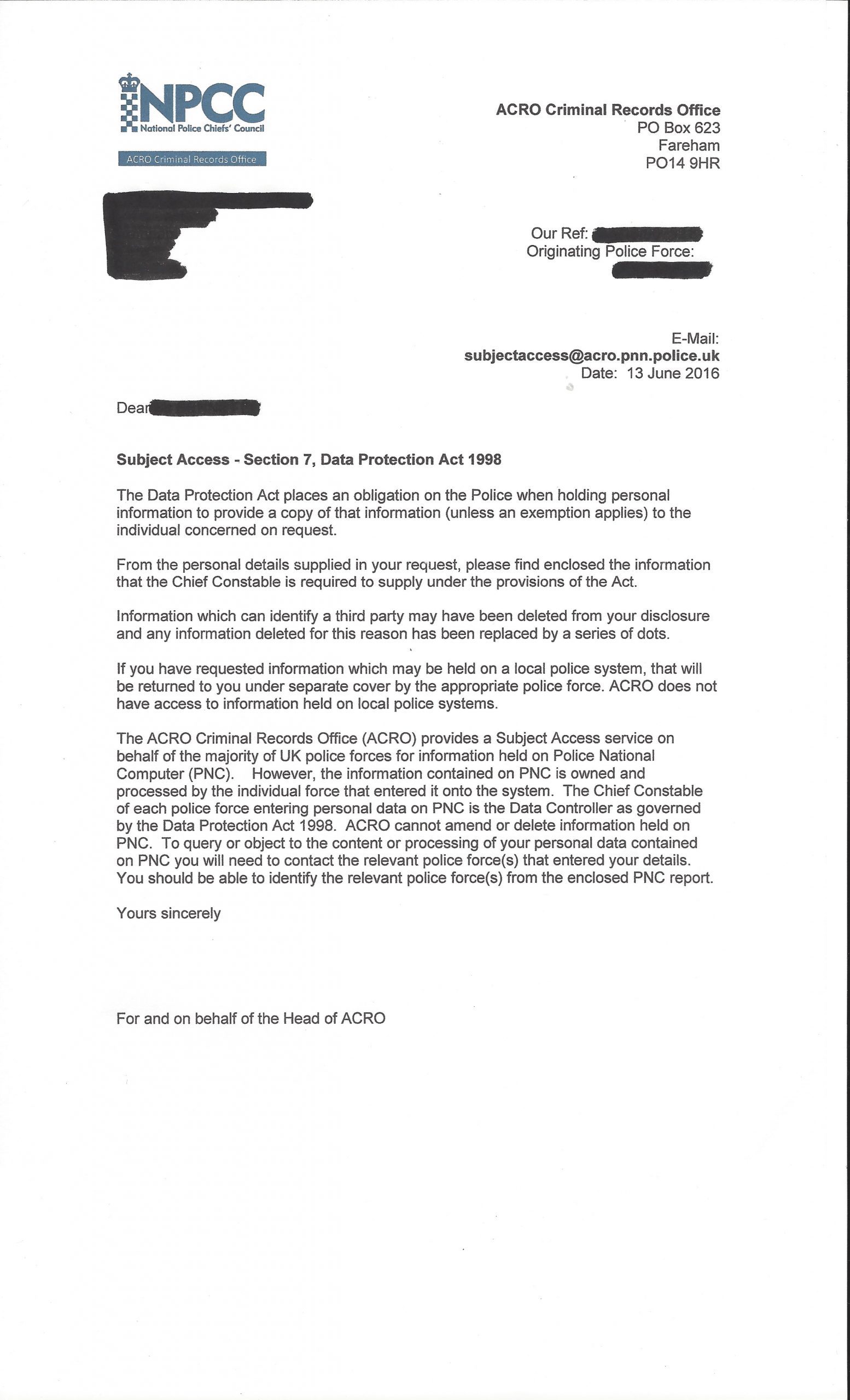
Finding out what’s on your criminal record will assist you when it comes to dealing with employers and other organisations (for example insurance companies). Once you have this information you will be able to work out if your convictions are spent or filtered, thereby giving you a better understanding of whether or not you need to disclose your convictions.
This information sets out the different ways in which you can find out the details of your criminal record and how to apply for them.
This information forms part of our disclosing to employers section.
There are millions of people in the UK with a criminal record. You will probably have a criminal record if you have ever accepted an official police caution, pleaded guilty or been found guilty in a criminal court.
Employers, insurers, and others might ask you for details of your criminal record, and if the information you disclose is not accurate, this could cause you problems at a later stage.
It’s important therefore that you find out what’s contained on your criminal record, to enable you to disclose the correct information when asked. This will prevent you from disclosing inaccurate information, disclosing too much information or not disclosing what you are legally obliged to disclose.
Before you start thinking about how and when to disclose, you need to know what to disclose. It’s a good idea to know this as soon as possible and before applying for a particular role.
There are various types of criminal record checks. The most common are those which relate to employment and are referred to as basic, standard or enhanced DBS checks. You can apply for your own basic DBS check. However, you cannot apply for your own standard or enhanced DBS check.
Depending on what type of job you’re applying for, there are two different ways to find out about your criminal record for disclosure purposes:
Click above image for an example of a basic DBS certificate showing unspent convictions

Click above image for an example of a NPCC no trace letter and a four page Police Record SAR
When you apply for your SAR, depending on what you want, you can request to see:
There are also other ways of finding out about your criminal record, such as a police certificate (used for travel purposes). For more information, go to our information on understanding your criminal record.
With SAR’s being free of charge, you might assume that this is the best option available. However, it’s important to remember that what you see on your SAR will be different to what you’ll need to disclose to an employer. An SAR provides details of everything that’s held about you on the Police National Computer (PNC), it doesn’t differentiate between spent and unspent convictions. If you’re not really careful you could easily find yourself disclosing too much to a potential employer.
If you’re applying for jobs in the future that involve basic checks. In particular, if you think your conviction is spent and you’re planning not to disclose it to an employer.
Help us to add value to this information. You can: